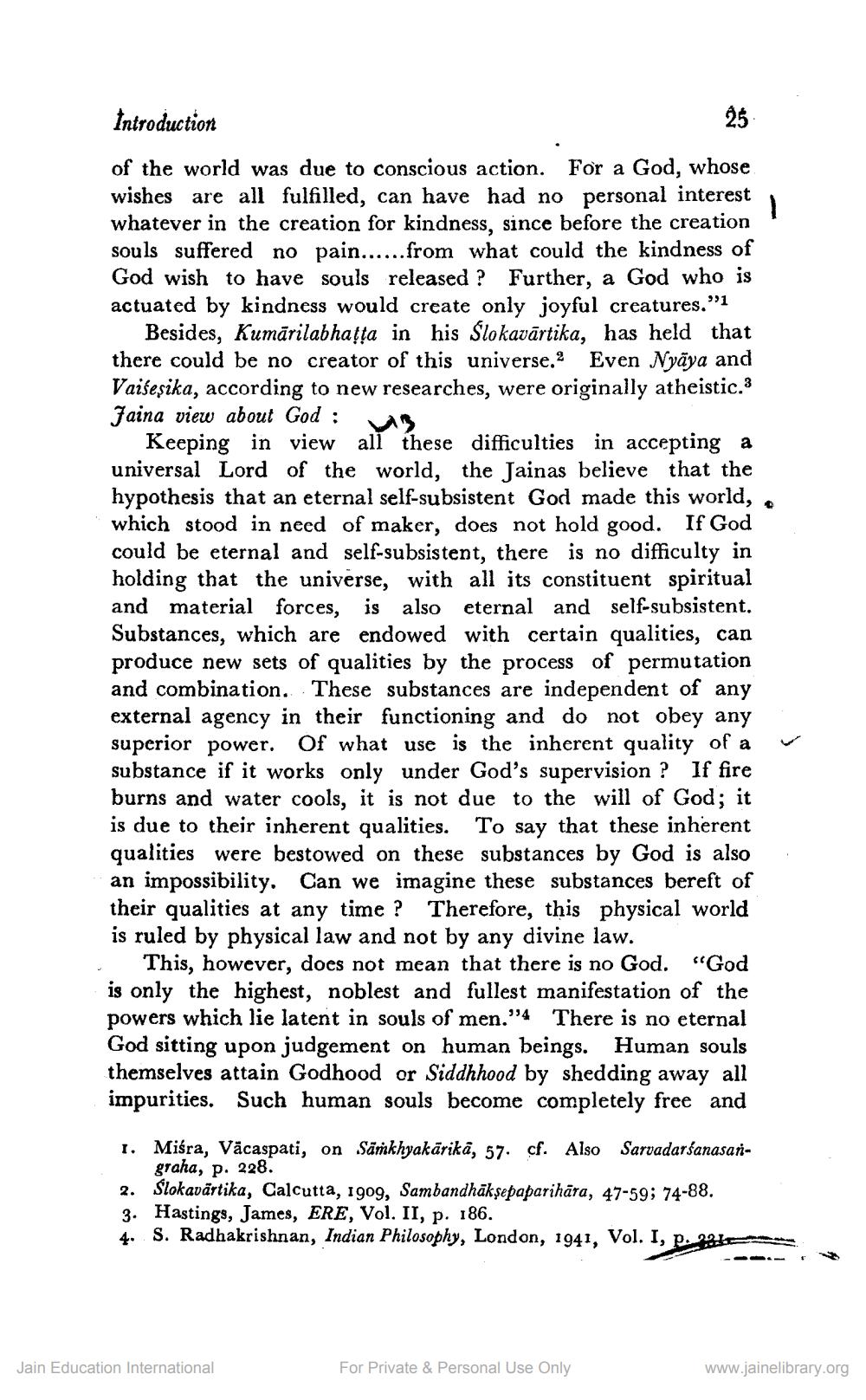________________
Introduction of the world was due to conscious action. For a God, whose wishes are all fulfilled, can have had no personal interest whatever in the creation for kindness, since before the creation souls suffered no pain...... from what could the kindness of God wish to have souls released ? Further, a God who is actuated by kindness would create only joyful creatures."1
Besides, Kumārilabhatta in his Slokavārtika, has held that there could be no creator of this universe.2 Even Nyāya and Vaiseșika, according to new researches, were originally atheistic.3 Jaina view about God : s
Keeping in view all these difficulties in accepting a universal Lord of the world, the Jainas believe that the hypothesis that an eternal self-subsistent God made this world, . which stood in need of maker, does not hold good. If God could be eternal and self-subsistent, there is no difficulty in holding that the universe, with all its constituent spiritual and material forces, is also eternal and self-subsistent. Substances, which are endowed with certain qualities, can produce new sets of qualities by the process of permutation and combination. These substances are independent of any external agency in their functioning and do not obey any superior power. Of what use is the inherent quality of a substance if it works only under God's supervision ? If fire burns and water cools, it is not due to the will of God; it is due to their inherent qualities. To say that these inherent qualities were bestowed on these substances by God is also an impossibility. Can we imagine these substances bereft of their qualities at any time? Therefore, this physical world is ruled by physical law and not by any divine law.
This, however, does not mean that there is no God. "God is only the highest, noblest and fullest manifestation of the powers which lie latent in souls of men."'4 There is no eternal God sitting upon judgement on human beings. Human souls themselves attain Godhood or Siddhhood by shedding away al impurities. Such human souls become completely free and 1. Miśra, Vācaspati, on Sāṁkhyakārikā, 57. cf. Also Sarvadarśanasar
graha, p. 228.
Slokavārtika, Calcutta, 1909, Sambandhākṣepaparihāra, 47-59; 74-88. 3. Hastings, James, ERE, Vol. II, p. 186. 4. S. Radhakrishnan, Indian Philosophy, London, 1941, Vol. I, p. 21
Jain Education International
For Private & Personal Use Only
www.jainelibrary.org




